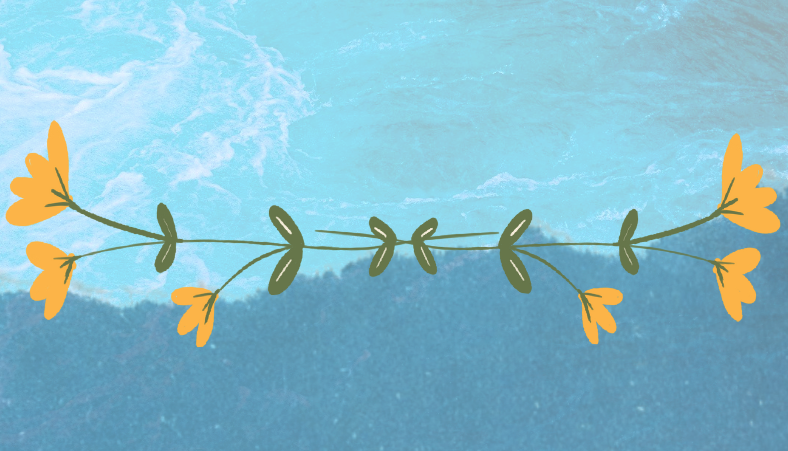
Defending the Sacred:
Indigenous-led Environmental Justice
"We are not defending nature, we are nature defending itself."
— Casey Camp-Horinek
Watch the recording of past webinars in this series - scroll down and click on the webinar event.
This series will be curated by award-winning community activist Brenda Perez. Brenda will open our webinars with an introduction of our speaker, and provide context to the upcoming discussion. We will hear from three indigenous speakers with diverse identities and walks of life, but all fight at the intersection of environmental justice and indigenous self-determination. We will explore the work that indigenous communities are doing to protect mother earth through direct action, fashion, the conservation of ancestral knowledge, and the exploration of identity.
According to Project Drawdown, a comprehensive plan proposed to reverse global warming, expanding the amount of land under indigenous-led land management is one of the top 40 solutions to reversing the impacts of climate change by 2050. The benefits of investing in indigenous-led land management include the conservation of biodiversity, reduction in greenhouse emissions, and the protection of indigenous traditions and culture. Indigenous communities have developed techniques to live sustainably with the natural environment without exhausting its resources. Despite colonization, capitalism, and racial injustice, indigenous people continue to be at the frontlines of important environmental justice movements today as the original stewards of this land.
Investing in indigenous self-determination and shifting decision-making power to center indigenous systems of knowledge are vital to the just restoration of our natural and built environments. Additionally, environmental justice is an intersectional issue area, dealing with social, racial, and economic inequities; therefore, the solutions must also be intersectional and center the most vulnerable communities.
“As Indigenous Peoples we understand how we are here as the guardians and caretakers of the soil, land, nature, and life itself. So we want the world to have a better understanding on how to address climate change and some of the ecological challenges that this planet is now having.”
- Tom Goldtooth.
About our curator for the Indigenous-led Environmental Justice series, Brenda Perez
Brenda Perez (she/her/ella) is a local D.C. award-winning community activist who is passionate about fighting for the liberation of mother earth and oppressed people of color. Originally from Nezahualcóyotl, Mexico City, Mexico, she has been living in D.C. since 2006. Though she began to notice disparities early on as she navigated the public education system, her formal introduction to organizing spaces happened under the training of Movement Matters, where she met other students who were organizing to address issues that were affecting them. In high school, she began to organize around language justice and the broader immigrant rights movement. She continues to organize and is currently working on the New Deal for Youth at The Center for Law and Social Policy to propose policy changes that provide more economic opportunities for youth. She has a master’s degree in water resources management from The University of the District of Columbia and is a program analyst for DOEE's Office of Urban Agriculture, where her efforts focus on finding new ways to make public funds more accessible to urban farmers to reduce food insecurity and create more opportunities to grow food locally. Recognizing that climate change is a time-sensitive issue, she strives to be inclusive and open up spaces for action in communities that have been impacted disproportionately.
Headshot image description:
Photo of Brenda, a light-skinned woman with dark wavy long hair, and smiling at the camera. She is wearing a BLM t-shirt with a flowered necklace and a grey sweater. Background is blurred with cars and a building.
Resources:
Notes used and / or considered in planning the Indigenous Led Environmental Justice Series:
1. Indigenous Climate Action, e.g., ED Eriel Deranger, Melina Laboucan-Massimo, ICA's Dir of Healing Justice
2. Indigenous Environmental Network, e.g., Tom Goldtooth (ED), or son Dallas Goldtooth, IEN's Keep it in the Ground Campaign Organizer
3. 350.org. e.g., Clayton Thomas-Muller (Cree), author of autobiography Life in the City of Dirty Water, Senior Campaign Specialist
4. Climate Justice Alliance CJA
5. International Indian Treaty Council, e.g., Janene Yazzie (Diné), IITC's SUstainable Development Program Coordinator. Sixth-World.com, Morning Star Gali (Pit River) IITC's CA/Tribal Liaison
7. Dr. PennElyx Droz, NDN Collective, (Anishinaabe / Wyandot)
Indigenous-led Environmental Justice Webinar 1
with Thomas Lopez
June 22, 2022 - 7pm - 8:30pm EST
We’re are delighted to have Thomas open this very special series for us. Thomas is a young person that has been organizing with native youth for environmental justice. They come from a generational family of community organizers and activists. Thomas also has a lot of experience working with indigenous-led non profits.
Indigenous-led Environmental Justice Webinar 2
with Ashton Dunkley
July 13, 2022 - 7pm - 8:30pm EST
We hope you will join us for our next webinar of the series, which will be led by Ashton Dunkley. Ashton is a proud advocate for Indigenous sovereignty and Black liberation, and is fascinated by the intersections between race, authenticity, and historical memory as well as their roles in the lives of Native communities within the mid-Atlantic region, particularly the Nanticoke Lenni-Lenape.
Indigenous-led Environmental Justice Webinar 3
with Brook Thompson
Sept 21, 2022 - 7pm - 8:30pm EST
We hope you will join us for our next webinar of the series, which will be led by Brook Thompson. Brook's goal is to bring together water rights and Native American knowledge through engineering, public policy, and social action. Current fights include undamming the Klamath River, MMIW awareness, supporting Traditional Ecological Knowledge (TEK), and encouraging women and Natives in STEM fields. She gives public speeches and makes artwork to raise awareness on these issues…



